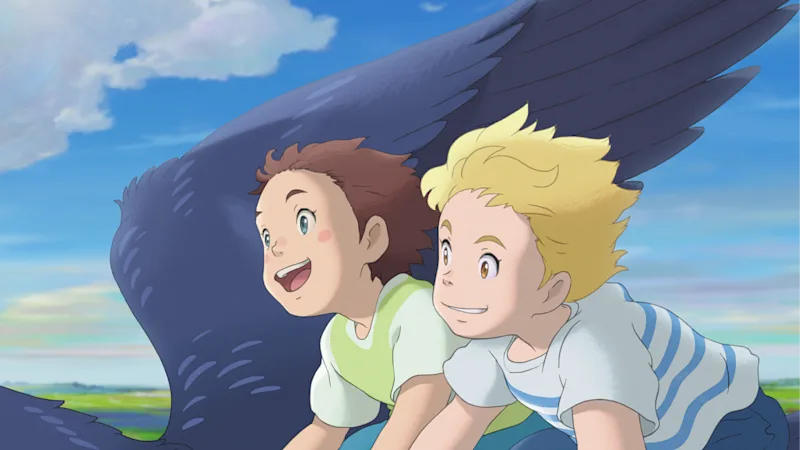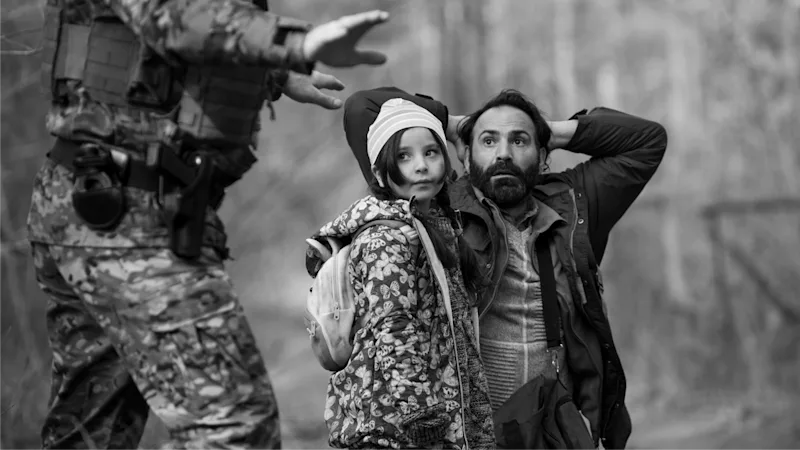From May 17-25, the Academy Museum is hosting a retrospective honoring the Oscar-winning Korean actress Youn Yuh-jung. The screening series looks back on Youn's more than 50 years in front of the camera, spotlighting such highlights as her film debut in 1971's Woman of Fire (화녀), 2003's A Good Lawyer's Wife (바람난가족), 2016's The Bacchus Lady (죽여주는여자), and of course, Minari, for which Youn won the Oscar for Best Actress in a Supporting Role in 2021.
"I became an actress by accident. I didn't plan to be an actress. I didn't want to be one!" Youn tells A.frame. "My life has been full of happy accidents. Winning an Oscar was a really lovely one."
When she won, Youn made history as the first Korean performer to take home an acting Oscar. "Maybe [this is] American hospitality for the Korean actor? I'm not sure," she said onstage at the 93rd Oscars. Now three years removed from her historic win, Youn found herself wondering if that same hospitality was responsible for the retrospective, which she says came as a surprise. "I thought, 'Wow. They know who I am?' she laughs. "I've had a career in Korea for almost 60 years, but I haven't been recognized very often outside the country, especially in Hollywood."
Unwaveringly humble about her career accomplishments, Youn attributes her increased international recognition to an increased global interest in South Korea's film and television community. "Korean culture is very popular around the world right now," she observes. "This certainly wouldn't have happened in the earlier years of my career, so my first thought really was, 'Am I that important?'"
In conversation with A.frame, Youn shares memories from her decades-spanning career and reveals her hopes for the future. (Details, dates, and tickets to the Academy Museum's retrospective series honoring Youn Yuh-jung are available here. Youn will attend screenings on May 17 and May 18.)

A.frame: You've been a member of Korea's film industry for over 50 years now. What has it been like to see the country's film and television community's efforts be recognized on an increasingly global scale over the past 20 years?
I've been thinking about that recently and wondering why it seems like we're so popular in Western culture right now. I've had a long career, and what I've learned over the years is that Korean people are actually very dramatic and very emotional. [Laughs] We've been good at drama and have been making movies for a while. Now, it just seems like the rest of the world is starting to realize that and focus on us a bit.
The Academy Museum's retrospective includes your first-ever film, Woman of Fire. Do you have any memories from the making of that movie that have stuck with you over the years?
Of course! It was a very memorable experience. I was 23 or 24 at the time — I was very young — but I remember thinking even then that the director, Kim Ki-young, was very different. In a way, he seemed like a bit of a weird genius, and once I was given my role, the first thing he asked of me was that I meet him every day for an hour or two. He seemed like an old man to me at the time, so I thought, "What does he want to talk to me about for two hours every day?" I still said, "Okay, I'll do that," and we ended up going to movies and getting cups of coffee and just chatting. That went on for one or two months, and I thought, "This man is so weird!" [Laughs]
Then we started shooting the film and, after one take, he said to me, "I need you to laugh like you did when we were having one of our conversations. You laughed in this very strange way. Can you laugh like that again in this scene?" I said, "Well, how did I laugh?" He said, "You weren't laughing very openly. You just had this strange smile. Can you do that again?" I realized in that moment, "Oh, so that's why he asked me to meet with him for two months. He was researching me."

What does it mean for you to be able to revisit your past work, like Woman of Fire, on the big screen through this retrospective?
I've lived too long, I think. [Laughs] I'm not even sure that I've seen Woman of Fire very many times. I watched it again about five or six years ago, I think, because that's when they remastered it. The film was lost for a very long time. A copy of it had been sent overseas to some film festival years ago, though, and that's how they found it. Afterward, they remastered it, and I remember rewatching it around that time, and it seemed very shocking to me five or six years ago. I'd like to experience it again one more time now, so I'm looking forward to that. I'm glad they chose to include it.
Of course, I haven't worked on as many movies as some other actors. I didn't make very many films immediately after Woman of Fire, because after I made that movie, I didn't think I ever wanted to work on a set again. Kim Ki-young was a genius, but I thought his process was too weird for me. At that time, Korean television was developing more, and the TV shows that were being made had a nicer atmosphere than most movie sets, so I started working more on television for a while.
Is there a film you haven't seen in a long time that you're looking forward to revisiting during this series?
I'd say The Bacchus Lady. That's a film about an elderly female sex worker. In Korean society, we still don't have pensions and retirement plans, so some elderly women end up becoming sex workers. The term "Bacchus Lady" partly refers to an energy drink, Bacchus-F. Bacchus Ladies sell those drinks to potential clients and then they'll proposition them. It seems very sad to me, so I still don't really know why I told [director] E J-yong that I would do the film. When I was making it, I regretted saying yes. I'm an older lady and I've been through a lot of things myself, so I don't really seek out tragic stories at this point in my life. I was very sad during the shooting of the film, and I only watched it one time after it was finished. I'd like to watch it again now, though, and see if I can be a bit stronger about it all than I was before.

It's been three years since you won your Oscar for Minari. When you think back to the night you won, what do you remember most vividly?
I swear, my life is just a series of things that have accidentally happened. As a Korean actor, I never even dreamed about winning an Oscar and being recognized by Western filmmakers. So, I wasn't really myself when I won! My English isn't the best, and I didn't know what to do. I brought a translator with me to the ceremony just in case I did win, but she also lost her mind when my name was called, so she didn't follow me! [Laughs] In Korea, one of my best friends is a doctor who got a degree from Yale, and she knows my English-speaking capabilities. She said that she fell off her couch when she saw me stepping up to the stage by myself, because she thought, "Oh, what's she going to do?"
We all just lost our minds, and I didn't even look at the video of my acceptance speech for months after I won. When I eventually did, I just… [Groans] I couldn't have spoken better than I did in that moment, but oh, life is so full of regrets! Of course, I only became an actress by accident. I didn't plan to be one. I didn't want to be! But my life has been full of happy accidents. Winning an Oscar was just another really lovely one.
You've had an incredible career, but is there something that you haven't gotten to do as an actor that you still hope to someday?
No. I'm 77, and the good thing about me is that I don't have any ambition. I'd just like to get old very humbly and gracefully. If there's anything somebody wants me to do as an actor, I'm always happy to do so if my health is strong enough! I've played so many roles, including a lot on television, and I've portrayed so many kinds of characters, but I think even if I play the same kind of roles in the future that I already have, I can still do them differently. That's my goal, I guess. If I can do what I've previously done differently, then I think that will feel like playing in a new genre and field.
You've reached a point now where retrospectives are being shown in your honor. How does that make you feel about your career and the legacy you've built for yourself?
When I look back, I think about how I met a director like Kim Ki-young on my first movie. I really think you can't ever be successful by yourself. You always need somebody to help and work with you, especially in the movie industry. It's such a collaborative field. I think I've been very lucky to work with directors like Kim and [Minari filmmaker] Lee Isaac Chung. I really appreciate that about my career when I look back on it.
I don't think I'm a great actor. You can never say that about yourself with a 100% certainty. So, if I'm really lucky enough now to have a retrospective of my work shown at a place like the Academy Museum, I think I've probably only gotten to this point with the help of the people who have worked with me. Maybe it's because of them that I can stand up and be recognized like this now. That's just this old lady's theory, at least.
By Alex Welch
RELATED CONTENT:
Lee Isaac Chung: 5 Movies That Inspired 'Minari'
Asian American and Pacific Islander Heritage Month 2024: Films to Watch in Celebration







